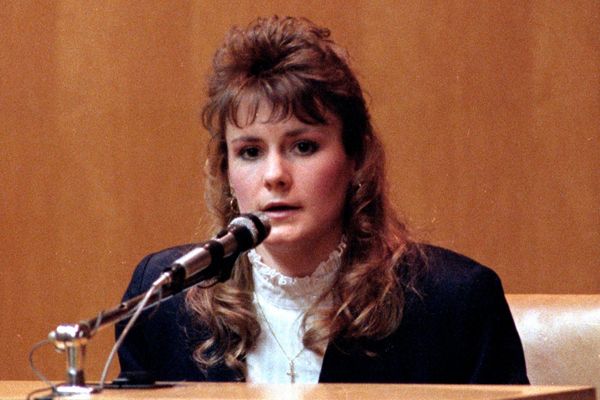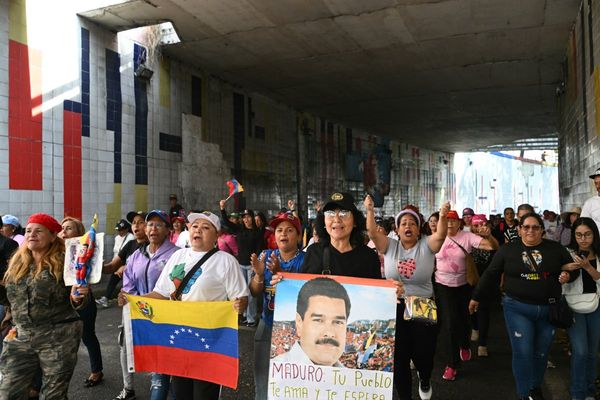In late September 1941, tens of thousands of Jews from the city of Kyiv were rounded up by the Germans with the help of Ukrainian militia. They were taken to a place called Babyn Yar, meaning “old woman’s ravine” in Ukrainian. Here, they were forced to strip before being shot by members of Einsatzgruppe C, Sonderkommando 4a, a Nazi death squad. More than 33,000 Jews were murdered. Following the slaughter, a few older Jews managed to return to Kyiv where they sat for days and nights by the synagogue, traumatised, until they, too, were killed by a German guard.
The Babyn Yar massacre has come to represent what is known as the “Holocaust by bullets”. Around 1.5 million Ukrainian Jews were murdered between 1941 and 1944, the majority by gunfire. But it was not only Jews who were slaughtered at Babyn Yar. By the time the Soviets reached Kyiv in late 1943, the Nazis had used the ravine for killing operations to which Roma, Soviet prisoners of war, Ukrainian nationalists, and priests (among others) fell victim. All in all, some 100,000 people met their deaths at Babyn Yar.
Babyn Yar continued to bring death. In March 1961, a huge landslide known as the Kurenivka mudslide resulted in mud and water pouring onto the streets of Kyiv. Amongst the mud were human remains from Babyn Yar. The Soviet authorities had tried to bury Babyn Yar beneath a landfill. Then it was filled with liquid waste from nearby brick factories. The mudslide, according to official figures, caused 145 deaths, but the number could have been as high as 1,500 according to historian Oleksandr Anisimov. These were not to be the last deaths at the site: on March 1, a Russian missile targeted at a TV tower at Babyn Yar killed at least five people and reportedly caused damage to the memorial park now located there.
Contested memory
The first official memorial at the site was erected in 1976. It was dedicated to Soviet citizens. There was no mention of Jews. Then, after the collapse of the Soviet Union, new memorials were placed at Babyn Yar, recalling the various victim groups. Particularly well-known, now, is the memorial to the Jews in the form of a menorah. Only last year, a memorial centre was opened at Babyn Yar.
That Putin’s forces should attack or at least allow collateral damage to the memorial site has been widely condemned. In the context of the Soviet Union’s long history of failing to acknowledge Jewish victimhood during the Holocaust, hiding it under the rubric of “Soviet citizens”, this seemed like yet another attempt to wipe out memory of the annihilation of the Jews.
The irony of the situation was palpable. Putin had spoken of the need to defend Russia against the “humiliation and genocide” emanating from Ukraine, and hence to “demilitarize it and denazify it”. Yet here were his troops doing violence to the sanctity of a memorial site commemorating Jews. The real threat of genocide comes not from Ukraine, but from Putin. The prosecutor of the international criminal court in The Hague has just announced he would start an investigation into possible crimes against humanity committed during Russia’s assault on Ukraine. The absurdity of Putin’s claims is of course borne out by the fact that Ukraine’s president Volodymyr Zelensky is Jewish.
But who are the Nazis here?
But this is no contradiction in Putin’s eyes. US philosopher Jason Stanley has pointed out that Putin sees himself as the “global leader of Christian nationalism”, which is hard, according to Stanley, to distinguish from fascism. In such a scenario, Jews appear as a threat and are perceived as having “seized” the victimhood narrative from the “real” victims – namely, Russian Christians. Following this argument, we might say that any attack on Holocaust memory is also an attack on what is imagined as a source of Jewish power in the present.
In the Soviet Union – and in the eastern bloc more generally – especially in the 1950s, campaigns were carried out against “Jewish cosmopolitanism”. Jews living in eastern Europe stood accused of being purveyors of corrupt western influences, and of lacking patriotism. In Putin’s eyes, Ukraine’s government, in supposedly denying the right of those living in Crimea and the Donbas region to “return” to Russia, are acting like neo-Nazis. But now the threat is not Hitler, but western Nato-driven imperialism – which Putin clearly sees as the new fascism.
The west, says Putin, is seeking to force values on Russia which would “erode us from within”. Such attitudes lead to “degradation and degeneration”. This sounds like Hitler talking about Jews. And at the heart of what Putin sees as this western conspiracy of infiltration, in Ukraine, stands a Jew: Zelensky, three of whose great uncles were murdered in the Holocaust. If Putin really sees Holocaust memory as a tool of western imperialism, then what has happened at Babyn Yar is perhaps no surprise.
There have been reports suggesting that the memorial site was not, or was only very slightly damaged. But Zelensky, in asking the world in a tweet what the point is of saying “never again” when bombs drop at Babyn Yar, has already used the situation to point to the antisemitism implicit (and surely in his view also now explicit) in the Russian campaign against Ukraine.
The Babyn Yar memorial park can be added to any time. In 2006, a memorial to the victims of the 1961 Kurenivka mudslide was installed. When this war ends, and peace returns to Babyn Yar and its memorial park, we can hope a memorial will be dedicated there to the five people who died in the Russian attack – in commemoration of all the victims of the current war.
The author would like to thank Dr Amy Williams of Nottingham Trent University, whose work on memorials informed this article.
WIlliam Niven does not work for, consult, own shares in or receive funding from any company or organisation that would benefit from this article, and has disclosed no relevant affiliations beyond their academic appointment.
This article was originally published on The Conversation. Read the original article.







